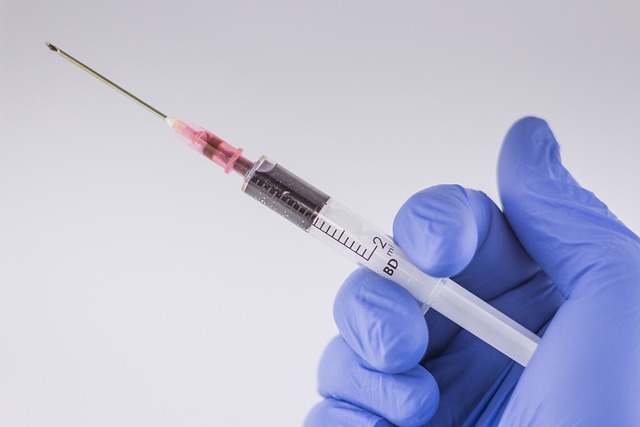The UK's home blood test at home service offers a convenient and private method for individuals to monitor their iron levels by measuring ferritin, a key indicator of iron stores, from home. This service is crucial for early detection of iron deficiency, which can lead to anemia and its symptoms like fatigue and weakness, especially in at-risk groups such as women of childbearing age, vegetarians, and those with chronic diseases like inflammatory bowel disease or hemochromatosis. Regular monitoring supports timely intervention to prevent health complications associated with iron imbalances. The home testing kits are user-friendly, complete with clear instructions for accurate sampling, and allow individuals to send their blood samples to accredited laboratories for analysis. Results can be monitored through a secure online portal, enabling informed decision-making regarding dietary changes or supplement use. This service is particularly beneficial for those with busy schedules or limited access to healthcare facilities, making it an essential part of health monitoring and management within the UK. If ferritin levels are outside the optimal range, it's important to consult with a healthcare professional to understand the implications for your health and to receive tailored advice or treatment.
Iron deficiency remains a prevalent concern in the UK, affecting individuals across diverse demographics. A key indicator of iron stores within the body is the ferritin level, which can be measured through a simple blood test—now conveniently available as a home testing kit in the UK. This article elucidates the significance of ferritin levels in health, guides you through the process of self-administered testing, and offers insights on interpreting your results and subsequent treatment options. Understanding this link is crucial for maintaining overall wellness and avoiding the repercussions of iron deficiency.
Understanding Iron Deficiency: The Role of Ferritin Levels in Health

Iron is a critical element for haemoglobin production, which carries oxygen throughout the body. A deficiency in iron can lead to anaemia, a condition characterised by fatigue and weakness. In the UK, individuals concerned about potential iron deficiency have the convenience of a blood test at home service, which eliminates the need for hospital visits and long wait times in clinics. This service provides a simple way to measure ferritin levels, a protein that stores iron in the body and serves as an indicator of one’s iron reserves. A low ferritin level is often an early sign of iron deficiency and can be detected before anaemia develops. Understanding one’s ferritin levels through a home blood test is pivotal for early intervention, as it allows for timely treatment to prevent the progression of iron deficiency and its associated health issues. Regular monitoring of ferritin levels, particularly for those at higher risk such as women of childbearing age, vegetarians, and individuals with chronic conditions like inflammatory bowel disease or haemochromatosis, is essential for maintaining overall health. The home blood test service in the UK facilitates this by providing access to laboratory-grade testing from the comfort of one’s own home, making it easier to stay on top of one’s iron status and overall well-being.
Home Testing for Ferritin Levels: A Convenient Option in the UK

For individuals in the UK seeking to monitor their ferritin levels from the comfort of their own homes, home testing has emerged as a convenient and accessible option. This approach eliminates the need for travelling to clinics or laboratories, offering a degree of flexibility and privacy that traditional blood tests at home may not provide. With the advent of reliable home testing kits, UK residents can now collect their own blood samples under medical guidance and send them to accredited laboratories for analysis. These kits come with comprehensive instructions to ensure accuracy, minimising the risk of error and ensuring that the results reflect one’s true iron status. This method is particularly beneficial for those who have busy schedules or limited access to healthcare facilities, as it allows for regular monitoring of ferritin levels, which is crucial for managing iron deficiency effectively.
The process of conducting a UK blood test at home begins with the acquisition of an authorised home testing kit. These kits are readily available online from reputable suppliers and include all necessary materials, including sterile lancets, collection tubes, and prepaid return envelopes. Once the sample is collected, it’s essential to follow the provided instructions precisely to avoid contamination or incorrect sampling. After sending the sample, individuals can track their results through a secure online portal, where they will receive detailed information about their ferritin levels. This data is invaluable for understanding one’s iron status and for making informed decisions regarding dietary changes or supplementation, thus playing a key role in the prevention and treatment of iron deficiency.
Interpreting Your Ferritin Level Results and Next Steps for Treatment

If your ferritin level results have indicated a value outside the optimal range, it’s crucial to understand what these numbers mean for your health. Elevated levels may suggest chronic inflammation or an overproduction of iron in the body, which could stem from various conditions, including hemochromatosis. Conversely, low ferritin levels are often a sign of iron deficiency, which can lead to anemia and affect your energy levels, cognitive function, and overall well-being. In either case, interpreting these results in collaboration with a healthcare professional is essential. They can provide context specific to your individual health status, lifestyle factors, and symptoms.
For those in the UK seeking clarity on their iron status, a blood test at home offers a convenient and private alternative to traditional clinic visits. This service allows for the collection of a blood sample from the comfort of your home, which is then sent to a laboratory for analysis. The results are interpreted by medical experts who can guide you through your next steps for treatment. If iron supplementation or dietary changes are advised, they will recommend a course of action tailored to your needs. Additionally, if further investigation is necessary due to abnormal ferritin levels, your healthcare provider will outline the subsequent diagnostic procedures and treatments that may be required to restore iron balance in your body and improve your health outcomes.
In conclusion, regular monitoring of ferritin levels is a critical step in managing iron deficiency, a common health concern. For UK residents, the advent of home testing for ferritin levels offers a convenient and accessible means to identify potential iron deficiencies early on. Understanding one’s own health metrics, particularly through a UK blood test at home, empowers individuals to take proactive measures in maintaining optimal iron levels. Should your ferritin level results indicate a deficiency, prompt medical consultation is essential to determine the appropriate treatment course. By staying informed and taking advantage of these modern testing solutions, you can effectively manage your health and ensure well-being.
